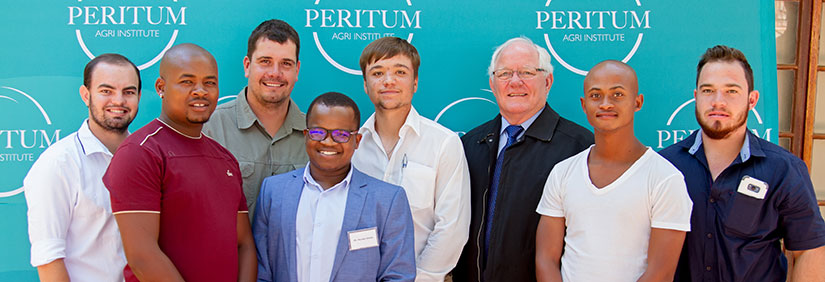What Peritum does to qualify SA youth in agriculture
South Africa leads the continent in the advancement of agricultural technology, particularly in crop production. This is being driven by climate change and growing variability that have increased the need for research and development. The advancements in the sector require skilled labour to facilitate the changes in farming. As climate change and variability, the need for urban agriculture, farming as a business, and regenerative farming practices, inter alia, become more evident, it becomes increasingly necessary to change farming to adopt best management practices and to improve agricultural resilience.
The failure to upskill agricultural labour could limit the growth and development of the sector itself, which also limits its capacity to absorb labour. The farming population is ageing. AgriSA estimates that the average age of a farmer in South Africa is 62. In countries that lead in food production, such as the United States, the average age of a farmer is 55, according to their Bureau of Labour Statistics.
Stimulating an interest in agriculture among the youth, and improving their skills levels, will increase their employment opportunities. As the population increases and urbanises, and tastes and preferences change, agriculture will invariably need to grow, and this will require human capital. (With acknowledgement to Wandile Sihlobo.)
Peritum have taken the demands of the future and the challenges to the education system into consideration in developing our agri education strategy for the future. Our focus inter alia is on the young farmer who wishes to work and study simultaneously; who prefer a practical approach to learning; or for whom fulltime study away from home/farm is just too expensive/inconvenient. Our programmes integrate theory with applied learning (practicals, simulations, and the like). We expose aspirant/young farmers, to the full food value chain to ensure that knowledge and practices are relevant and in context and provide solid grounding in the disciplines associated with agri production. Work Integrated Learning takes place when students are being placed in work environments for the purposes of learning. This usually involves students in planning and implementing an activity, in reflection on and evaluating the activity, and adjusting for future action. We firmly believe that a graduate who exists a programme should be able to apply the right skills, knowledge, attitude, and values on the first day of formal work…not only after an induction and retraining process (fit-for-work).
It is the mission of Peritum to “Design a sustainable future for agriculture through future-ready skills training.” Peritum Agri Institute partner with client organisations (primarily, but not exclusively, in agriculture) to development, implement and manage workable staff solutions, training, and development, and setting a foundation for further learning. We do this by ensuring the highest standards in under-graduate education, whilst promoting innovation, distinctiveness, and leadership in its academic and human pursuit. Our partnerships with John Deere, Red Meat Producers Organisations, Aeres University (Netherlands) and array of locally and nationally agri-stakeholders ensure that we can provide the best purpose fit practical exposure to our students on all programmes.
The Peritum Vision and Mission are executed through the way we conduct business, known as the PERITUM WAY. “The PERITUM WAY is a method of lifelong learning and improvement for people and their organisations. People enter a specific learning pathway where they continue to gain skills, over the years, to ensure a sustainable career”. This is demonstrated through our learnership programmes in agriculture, ranging from NQF2 to NQF4, eventually providing access to the national diplomas in agriculture, and thus affording alternative access to higher education studies (diploma) other than a Grade 12 entry.
Annually, a selection of our diploma students (current and alumni) and lecturers have the opportunity to visit our international education partner, the Aeres University of Applied Sciences, The Netherlands, as part of our student and lecturer exchange programme, where they engage in academic programmes, visit Dutch agricultural enterprises and engage with the Dutch culture. Similarly, Dutch lecturers and students visit Peritum for similar South African experiences. The Cooperation Agreement of 2018 with the AERES University allows for free reciprocal academic attendance/lecturing, contributing to academic and personal growth of both the student and lecturing body.
A comprehensive online offering complements our traditional educational and training strategies, allowing for flexible, accessible learning opportunities at the comfort of your home.
Peritum Agri Institute remains committed to the development of youth in agriculture be it through online short courses, learnerships or diploma studies.
